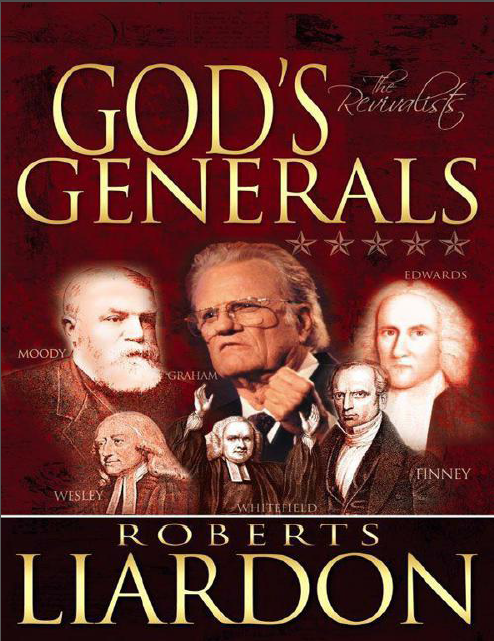Christian Literature
Gods Generals_Vol 3_(The Roaring Reformers)
The Roaring Reformers
- Category: Christian Literature
- Author: Roberts Liardon
- Pages: 444
- Price: 0
- Library: Christian Library Nation
- File: God's_Generals_vol_3_The_Revivalists_Roberts_Liardon_pdf.pdf
Hits: 270
Review
Introduction
The effectual fervent prayer of a righteous man availeth much.
—James 5:16
Though the reformation was some two centuries behind them and the
martyrdom of Jan Hus more than three hundred years in the past, in 1722 a
group of Hus’s followers from Moravia (a province in Bohemia, today part of
the Czech Republic) fled to Saxony (Germany) looking for religious freedom.
Driven by persecution, these “United Brethren,” as they called themselves,
found sanctuary on the land of a rich, young aristocrat, Count Nikolaus Ludwig
von Zinzendorf, who gave them a place to settle and to build a community of
believers. The township that emerged was called Herrnhut, meaning either “on
the Lord’s watch” or “under the Lord’s watch.” Because they had come to
Saxony from Moravia, the group became known as the Moravians.
Count Zinzendorf was a man of God who, at the time, had been actively
looking for ways to use his inherited wealth and influence to serve the kingdom
of heaven. In 1715, at the age of fifteen, Zinzendorf banded with four friends to
form what they considered a society of Christian knighthood, which they called
“The Order of the Mustard Seed.” The four vowed “1. To be true to Christ; 2.
To be kind to all people; 3. To send the gospel to the world.”1 Over the years,
the group grew in membership to include such men as the king of Denmark,
Christian VI; the Catholic archbishop of Paris, Cardinal Louis Antoine de
Noailles; the archbishop of Canterbury, John Potter; a Scottish member of the
British Parliament, Erskine; and eventually, after the Moravians had sent
missionaries there, the governor of Georgia, General James Oglethorpe; and
the Native American Chief of the Creek nation, Tomochichi.
Even though the count was only twenty-two at the time, hearing the
Moravians’ plea for something as simple as a place to worship freely ignited
his heart. He had recently purchased from his grandmother the town of
Bethelsdorf, where he installed a close friend, Johann Andreas Rothe, to be
pastor. Building a community based upon the Word of God was what he had
hoped to accomplish in Bethelsdorf, and here was a group of people who
shared this same determination. Desiring Rothe’s help in forming Herrnhut,
Zinzendorf gave them a plot for their new village only two miles from
Bethelsdorf.

